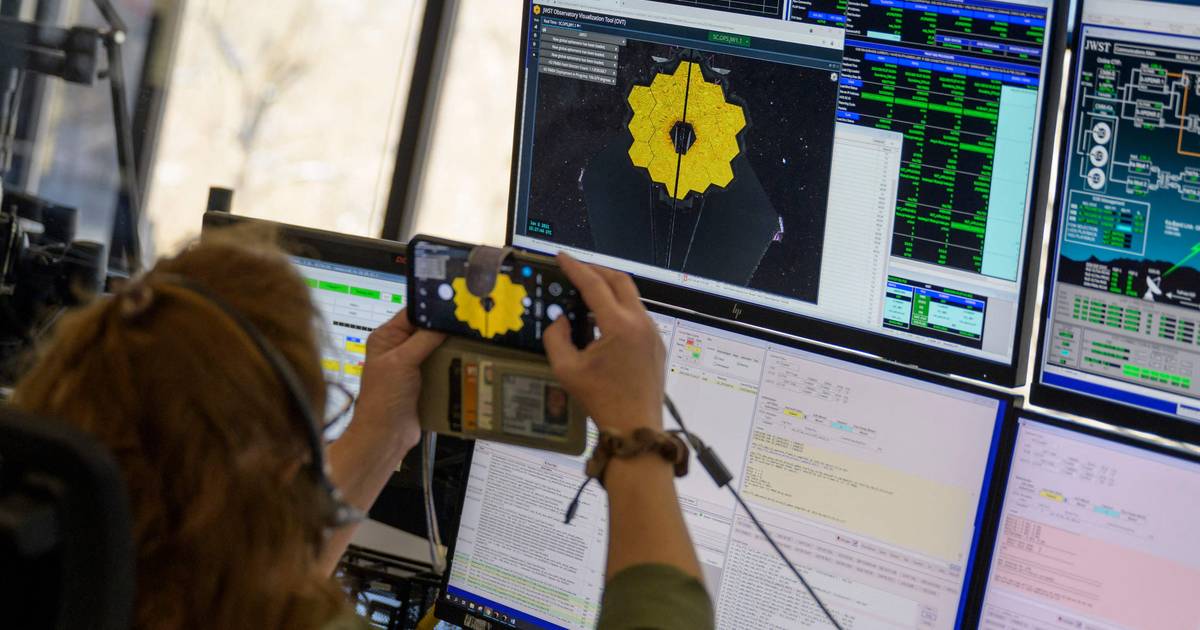to updateNASA reported Saturday that the new James Webb Space Telescope has revealed the most important part of it in space, a meter-sized mirror that collects light from the universe. This was the last step of the first part of the observatory installation that went smoothly.
“I’m emotional about it. What a great teacher. We’re seeing this beautiful pattern up there in the sky right now,” said Thomas Zurbuchen, chief of science missions at NASA.
“How do you feel when you make history, everyone? I just did it,” Zurbuchen said when the undisclosed mission was a success. “This is the moment we’ve been waiting for so long,” said his ESA counterpart, astronomer Antonella Nota.
James Webb is the successor to the famous Hubble Space Telescope, and several times more powerful than the latter. The telescope will scan the universe for light from the most distant galaxies, which formed 13.7 billion years ago.
Habitable planets and the effects of the Big Bang
The telescope was launched from French Guiana on Christmas Day. It is now more than a million kilometers from Earth. It flies towards its destination at a speed of 420 meters per second. It’s still about 400,000 kilometers away. The space telescope will arrive there in about two weeks.

James Webb is the size of a tennis court. When he left, it folded up to fit the rocket that carried him into space. The core of the space telescope is a 6.5-meter mirror, six times the size of the Hubble Telescope. This mirror captures light from space and reflects it onto a second mirror, which collects the light and sends it to the measuring instruments on the panel. Scientists want to use James Webb to search for planets where life might be possible, distant galaxies and traces of the Big Bang. The space telescope can look back billions of years further than Hubble.
It was developed and built by the European Space Agency (ESA), the United States (NASA), and Canada (CSA). Leiden University, the TNO Research Institute and the NOVA-OIR Scientific Office participate in the space telescope from the Netherlands.
eighteen hexagons
The James Webb mirror consists of eighteen hexagons that are connected together, but can move independently of each other. The mirror is made of beryllium, with a small 100-nanometer-thick layer of gold on top. This is a thousand times thinner than a human hair or paper. Beryllium is light, strong and can withstand extreme cold. Gold makes the mirror better able to see infrared light.
When James Webb is at his workplace in a few weeks, he can’t work right away. First, all devices on the plane must be cooled to minus 266 degrees. This takes about a month. After that, it takes a few months to test if everything is working properly. In the summer, James Webb can take the first measurements.

Watch the most viewed news videos in the playlist below:
Unlimited free access to Showbytes? And that can!
Sign in or create an account and never miss a thing from the stars.

Devoted music ninja. Zombie practitioner. Pop culture aficionado. Webaholic. Communicator. Internet nerd. Certified alcohol maven. Tv buff.

